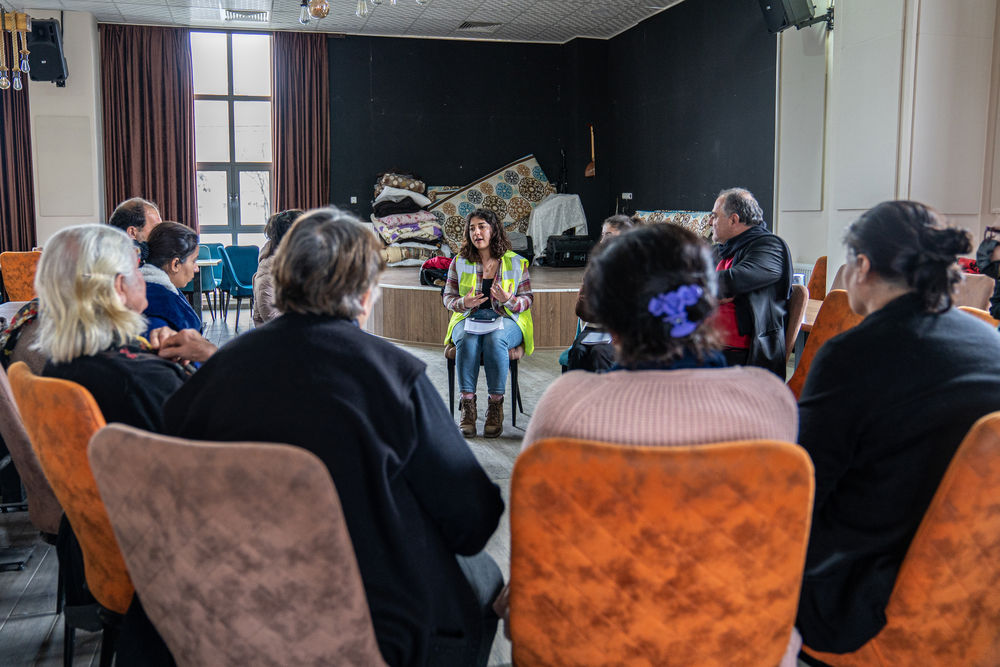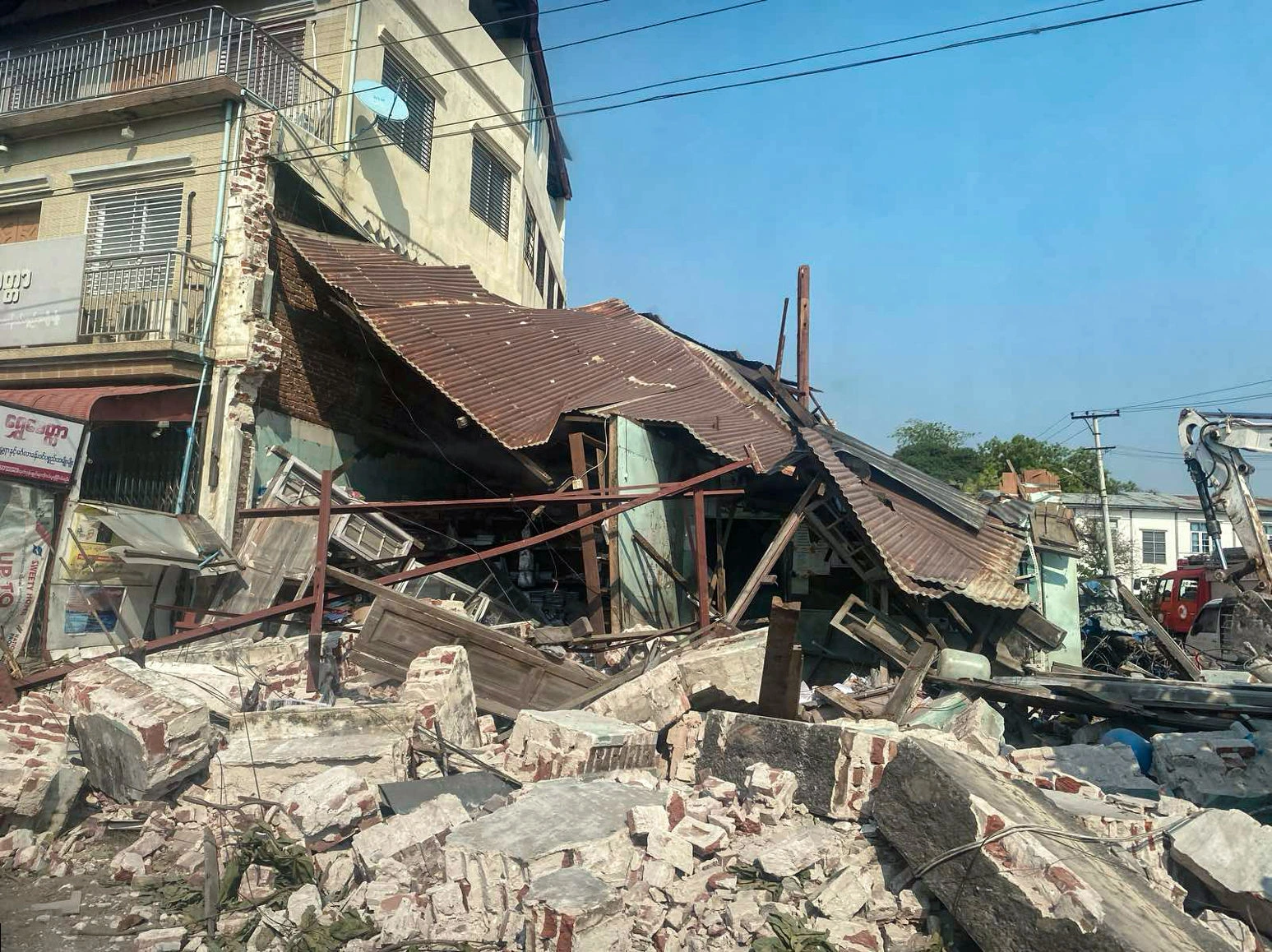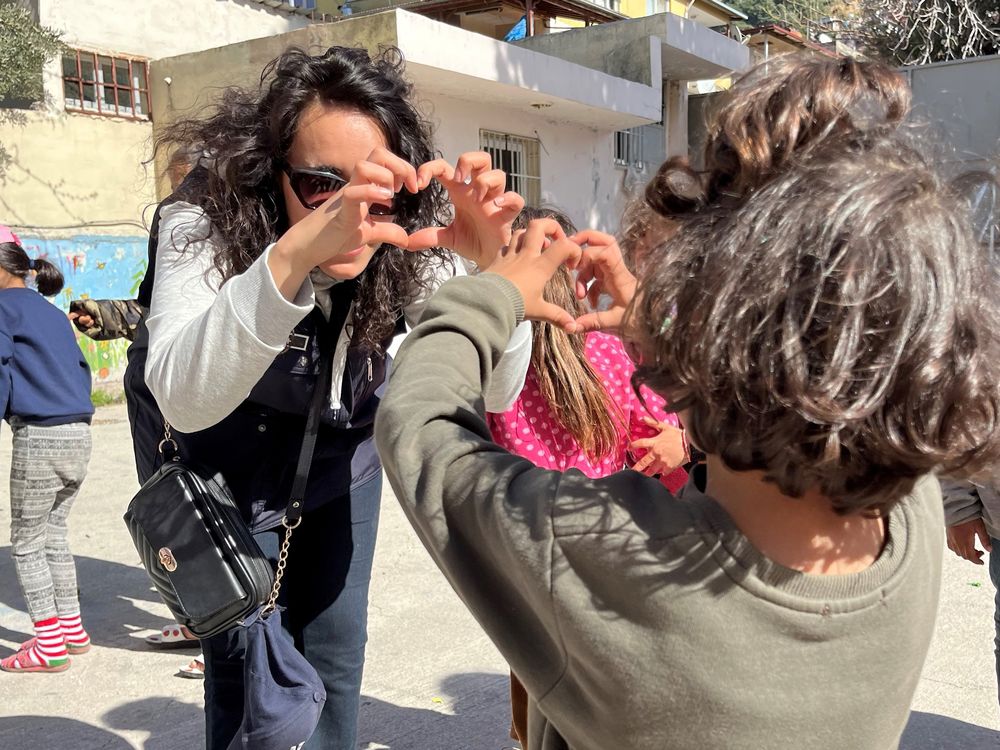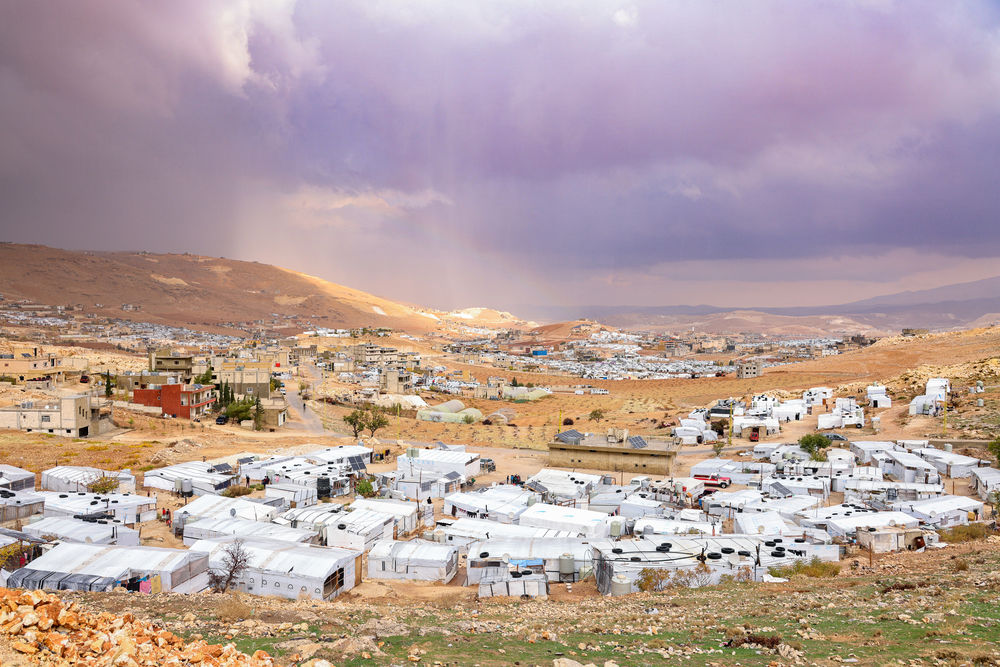In Türkiye the consequences of this February’s devastating earthquakes are all too visible in destroyed buildings, makeshift camps and rebuilding efforts widespread in affected areas. With the coming of spring, heavy rain has caused flooding, creating further issues. For the survivors, the earthquakes have also led to less visible, but still significant, consequences. MSF is supporting local organisations in Türkiye in their efforts to provide psychosocial support to people as they try to rebuild their lives.
In the days after the earthquakes struck, people would wait outside what remained of their homes while search and rescue teams tried to rescue people from the rubble. To add to the trauma during this first phase, people would have to identify every dead body that was found in the rubble, checking whether it was their loved one. As of early April, according to Turkish authorities, over 50,300 people were killed in Türkiye alone.
“Despite the problematic hygiene conditions and sometimes unfavourable weather conditions, most people are still too scared to enter buildings, they don’t feel safe. People are still outdoors out of survival instinct,” says in Adiyaman Nazlı Sinem Koytak, a psychologist for İmece İnisiyatifi, a local NGO supported by MSF.
MSF is supporting local organisations in providing psychosocial support to people in affected areas, including Adıyaman and Malatya provinces through İmece İnisiyatifi, and in Hatay and Kahramanmaras provinces, through Maya Vakfi, reaching over 7,500 people in individual and group consultations as of March 24.
 A psychologist from an MSF supported organisation conducts a psychosocial support activity for women and men on the outskirts of Malatya. © Mariana Abdalla/MSF
A psychologist from an MSF supported organisation conducts a psychosocial support activity for women and men on the outskirts of Malatya. © Mariana Abdalla/MSF
“In one of the villages, the participants said their houses ‘had now turned into monsters’. People used to take refuge in their homes, but now homes have turned into a place of fear, a place that kills them,” says Koytak.
Mental health workers encourage people to share their emotions, stories, and challenges, letting them know their feelings are normal given what they’ve been through. Group sessions build a bond among participants, bringing people together so they can be there to support each other during difficult moments.
People continue to be hyper alert and have difficulty concentrating and sleeping. Some have nightmares every night, are forgetful and have lost their appetites. Aftershocks are still happening daily, and people constantly relive past experiences in their minds and believe another disaster could happen. According to the Turkish Disaster and Emergency Management Presidency (AFAD), over 25,000 aftershocks have occurred since the February 6 earthquakes, 47 of them higher than magnitude 5 on the Richter scale. Because of that, psychologists in the organisations MSF supports are noticing post-traumatic stress symptoms are not decreasing.
The psychological toll of the disaster has also affected people physically, sometimes causing panic attacks, muscle pain and eating disorders.
In rural areas, such as Başpınar (Küllüm) and Kayatepe (Rezip) villages in Adıyaman, where İmece İnisiyatifi (Imece Initiative) runs support activities, most of the families have lost at least one person and are trying to rebuild their livelihood and communities. They are also having to host relatives coming from other locations. People coming from the cities often feel like urban spaces are too dangerous so go to the countryside.
For the people who remain in urban areas, the needs created by the earthquakes can exacerbate pre-existing tensions between different groups over resources. The scale of the disaster means needs for food, water and sanitation, as well as tents and other non-food items are overwhelming. Yardım Konvoyu (Aid Convoy Association), with the support of MSF, focuses on distributions to people in informal makeshift camps, set up in parks and parking lots.
Losing livelihoods creates yet another challenging situation people must adapt to, says Koytak.
“People can’t get back to work or to their household routines. Adıyaman is a destroyed city, for instance. With time, this situation, together with fear, will affect more and more people’s emotions and behaviours, making recovery a lot more difficult in the long run”. The local organisations that MSF supports provide psychosocial assistance to a wide range of people affected by the earthquakes: Turkish healthcare workers, Syrian refugees, volunteers, men, women and children. Psychosocial support can take many different forms, particularly for children who often benefit from simple activities such as drawing, dancing or listening to music.
“I can’t sleep well these days. I also can’t study. It feels like all the information I had in my mind is now gone. Whatever I used to know before, I don’t know anymore.”
Eylül, 13, lives in Kayatepe (Rezip) village in Adıyaman
The earthquakes were devastating, and their consequences will affect people’s lives for years to come. By working with local organisations in providing psychosocial support, MSF aims to help people access tools to enable them to further develop the strength and resilience necessary to rebuild and to process the immense trauma they have experienced.




